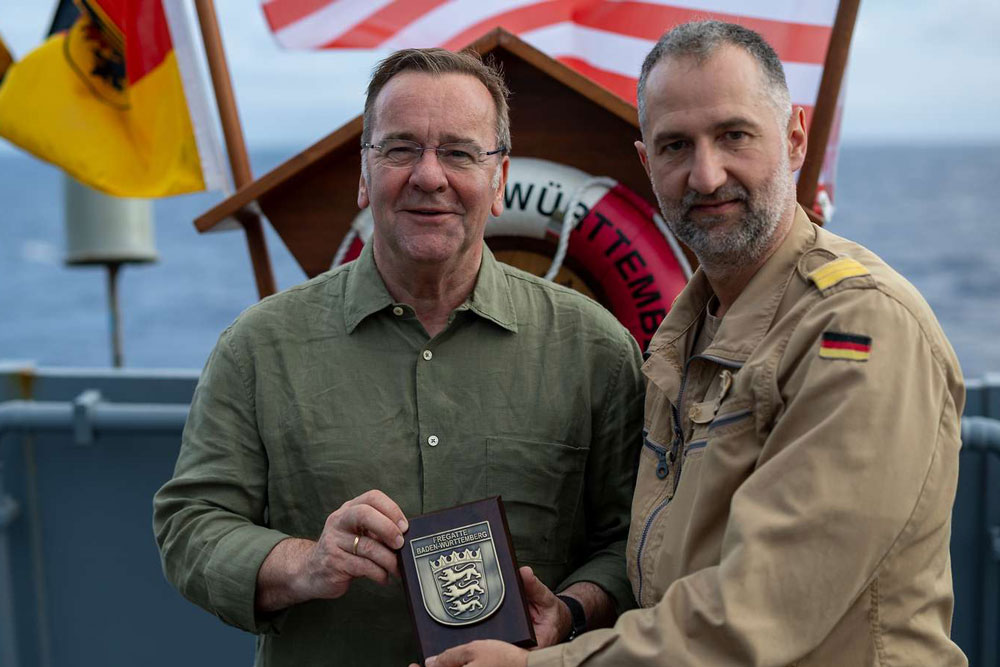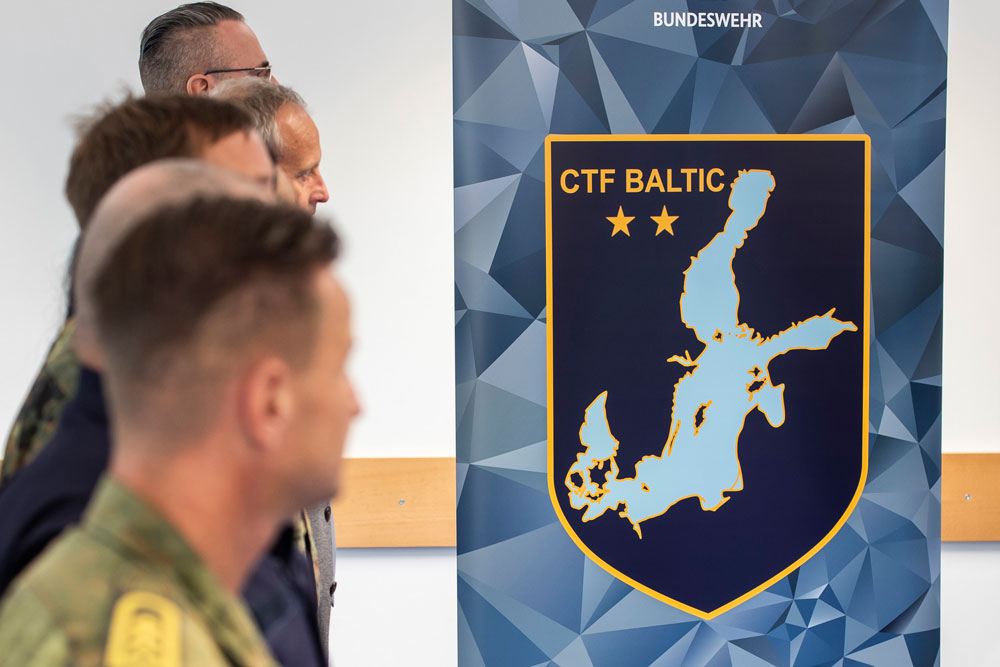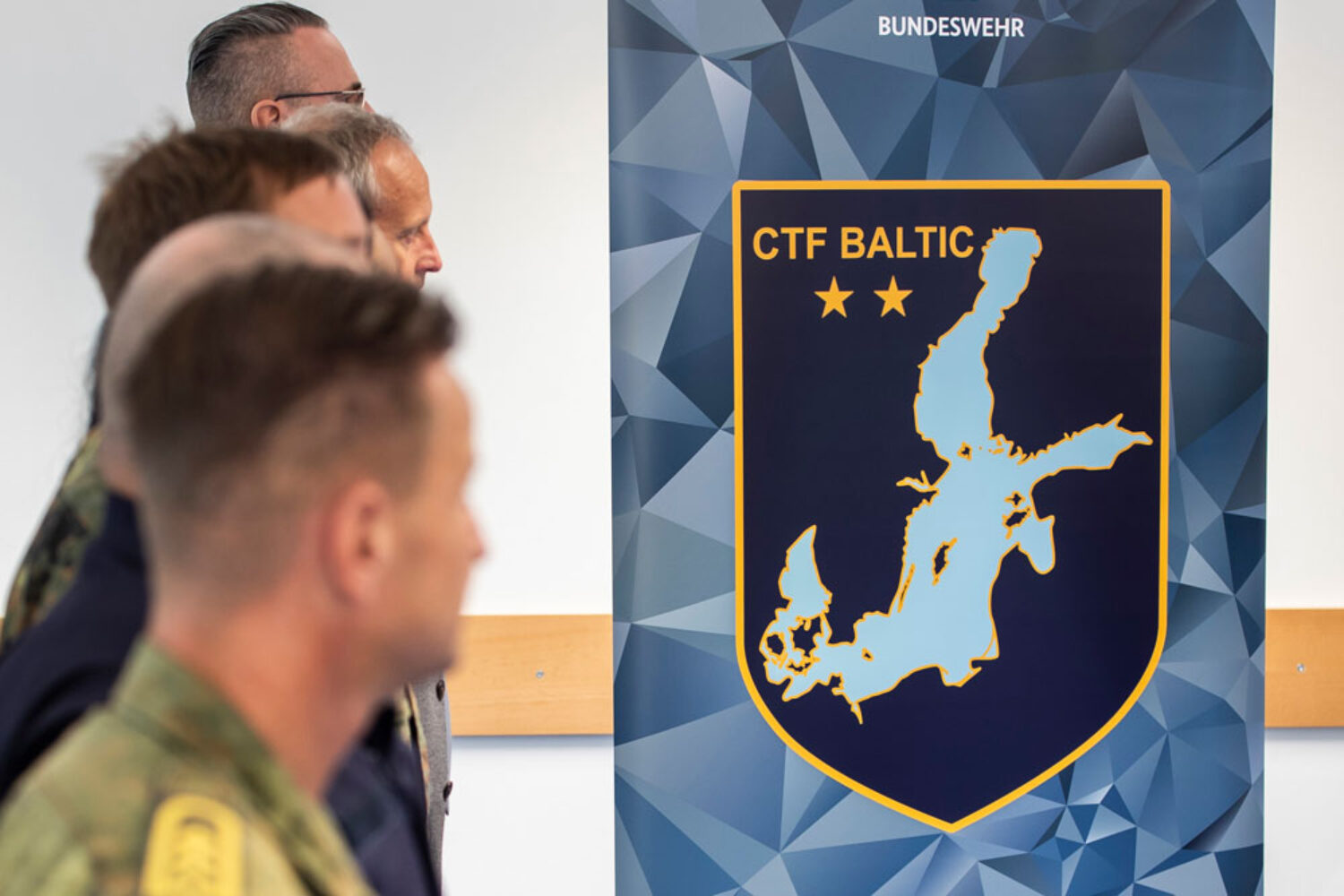Next Monday, the German Defence Minister Boris Pistorius is to inaugurate a new maritime tactical headquarters for NATO in Rostock.
The German Navy is the largest NATO navy in the Baltic Sea. According to the Bundeswehr, it has extensive regional expertise and broad naval warfare capabilities.
Against this backdrop, the German Navy assumed a regional leadership role for NATO on 1 October 2024 – the “Commander Task Force Baltic” (CTF Baltic) function. This gives it even greater responsibility in the Baltic Sea region than before.
CTF Baltic is permanently available for command tasks of the alliance in the Baltic Sea, maintains a maritime situation picture and coordinates naval activities in the region with the German allies. For the Bundeswehr, this is a further milestone in strengthening national and alliance defence – and a tangible expression of the implementation of the turnaround, it is said.

New NATO headquarters with multinational participation
As part of the adjustment of its command structure since 2017, NATO has also decided to set up permanent maritime headquarters at the so-called top tactical level.
These commander task force headquarters have two main tasks: to plan maritime operations and exercises and to lead naval forces assigned by NATO in peace, crisis and war.
For these purposes, CTF Baltic in the Baltic Sea region is to provide the Alliance with an up-to-date maritime situation picture around the clock. This situational picture is intended to combine military and civilian data on the one hand and to cover all military dimensions on the other.
CTF Baltic is a national headquarters with multinational participation. It is led by a German admiral. The position of his deputy will initially be filled by a Polish admiral and that of Chief of Staff by a Swedish staff officer. Subordinate leadership positions are also filled on a multinational basis.
In addition to Germany, eleven other nations are involved in CTF Baltic: Denmark, Estonia, Finland, France, Great Britain, Italy, Latvia, Lithuania, the Netherlands, Poland and Sweden. Soldiers from these and other partner countries can already occupy 60 multinational posts out of 180 in CTF Baltic in peacetime. In the event of a crisis or conflict, the staff can grow to up to 240 posts.














